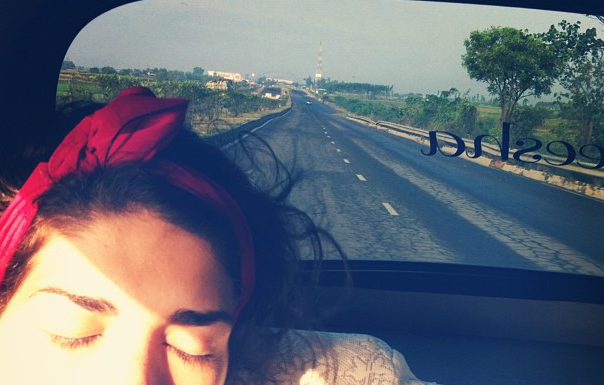"The Average UCLA grad earns $75,000 in their first year after graduation."
I first read this deceitful, exaggerated so-called fact in my dorm room, typed boldly in a pamphlet attached to my freshman welcome package. Sure, maybe if you get hired as a junior investment banker, but go ahead and cut that number into a third if you are building wells in third world countries or eradicating Malaria. When I graduated from UCLA in 2008, it was right at the beginning of America's worst economic recession since the 1920's. Six months later, jobless and frustrated, I dug up the pamphlet from my scrapbook box. I stared at the lie and felt a mix of betrayal and amusement. Hadn't I done all the right things? Gone to a good school, got good grades, had good intentions? College had been a safe, exciting bubble where I was inundated with opportunities and experiences that taught me to think outside the box and boldly state I was going to change the world. But after graduation, it seemed like my only chances of scoring ANY job was reduced to retail positions or the restaurant industry. The worst part seemed to be that my degree had been anthropology, which raised a lot of eyebrows amongst potential employers who wondered how my studies in carbon dating and Capuchin monkeys was supposed to be useful to them. I was in the same boat as my fellow idealists with humanities degrees: history, English and political science. Oh you studied worlds arts and cultures? Cool story bro, too bad that won't even qualify you for an administrative position at your local insurance agency.
My inspiration towards a humanitarian career came about with the rise of the internet and social media, as I was able to connect with the world in more depth than what mainstream media or books told me. Everything was suddenly real-time, and there was no going back and ignoring the war in Congo, the famine in Kenya, the political oppression in North Korea. But humanitarian jobs seemed impossible to find, and even then, I was unsure if I would make enough money to pay my rent, have health insurance, or even a savings account. Growing up, you are drilled with this pre-conceived formula on how it's all supposed to play out: Get good grades, graduate college, get a stable job, get married, buy a home, put a white picket fence around it, have 2.5 kids, start your 401K, accrue your vacation days and use them sparingly and wisely. If this was the safe road with brightly painted medians, no potholes and a Starbucks every 2 miles, I will tell you that I took the road that no one traveled on: a bumpy, dusty road with the occasional dust storm and a Wendy's every now and then if I was lucky. For four years after graduating, I worked at a restaurant at night while simultaneously being a co-founder at my NGO, Kitechild. I knew that I could not make a living wage solely at Kitechild, but I was so motivated by our cause that I made the sacrifice of two jobs. Fast forward to today: I am 27, not married, renting, can't even keep a cactus alive much less two kids, excited, scared -- and happy. I took the road less traveled, made my own path and hopefully along the way left this world a little better than I found it.

Howard Thurman said it best: "Don't ask what the world needs; ask what makes you come alive, and go do it. Because what this world needs is more people who have come alive." I think of all my passionate, socially conscious peers who are doing data entry in a cubicle or working at a bank, and wonder what happened to their passion to change the world, to help others. I'll go ahead and take a guess: fear. I get it, there are bills, food on the table, rent and student loans, and not enough jobs in the humanitarian field that will sustain our most basic needs. We millenials, those of use born between 1980 through early 2000s, have it rough. A recent article over at Salon will give you a pretty good summary of the poor economy, non-existent healthcare and vanishing middle class. But I look at this data and I don't see fear, I look at it and see that now, more than ever, the world needs all the dreamers, the idealists, the creative thinkers, problem solvers, the doers, the compassionate. The safe road isn't helping neither us millenials, nor those underprivileged communities a continent away. I hope my story serves as inspiration for you to make your own path, and take the risk of doing something that truly inspires you and makes you feel alive. Don't let your conviction and potential be shut down by fear. We are able to communicate and collaborate in broader ways than ever, and we must use this connectivity to inspire and support each other as we march towards change. As I head to NYC this week for the U.N.'s Social Good Summit, the Clinton Global Initiative and the United Nations Assembly, I will be reporting back on who is creating big changes in the world, how they are doing it, what their journey was to get to where they are now and how you can get involved. Follow #2030NOW for real-time updates. And remember, the world needs you.